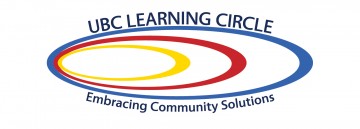Circle of Eagles Lodge
An organization run by Aboriginals for Aboriginals, COELS assists ex-offenders in becoming more productive, contributing members of society. COELS helps to reduce the number of Aboriginal repeat offenders through residential halfway house & rehabilitation services.
Contact: http://www.circleofeagles.com/httpdocs/contacts.htm
Elizabeth Fry Society of Greater Vancouver (EFry)
Areas of Interest:
• Aboriginal Health
• Access and Resources to Health Care
• Addictions
• Geriatric Health
• Health Education and Advocacy
• Health of Sex Workers
• Health, Human Rights, and Liberation Medicine
• Housing
• LGBT
• New Comer Health
• Prison Medicine
• Women's Health Inequity
• Youth and Children's Health Inequity
Description:
EFry operates over two dozen programs addressing the needs of women, youth and their families across the spectrum of justice system involvement – from those at risk to those making the transition back to independent living. Throughout EFry’s service delivery models, they help identify and navigate appropriate health services for clients and their children.
Website: http://www.elizabethfry.com/
Twitter: https://twitter.com/EFryVancouver/
Email: Jodi.sturge@elizabethfry.com
Opportunities for Involvement:
Students interested in helping out with public health promotion can contact Jodi.sturge@elizabethfry.com for more details.
Healing Our Spirits AIDS Project
Healing Our Spirit provides services for Aboriginal people living with HIV/AIDS, their families and communities and provides prevention education services for communities and groups across BC. The Vancouver office offers counselling, peer support, healing circles, cultural activities, housing advocacy, nutritional supplements, and referrals.
Contact: http://www.healingourspirit.org/content/contact-us
Helping Spirit Lodge
Helping Spirit Lodge Society is an Aboriginal women’s organization that aims to alleviate family violence and enhance community wellness through a traditional, holistic approach by providing safe, protective shelter to Aboriginal women and children, holistic educational programs of enhancement and support and advocacy to Aboriginal people.
Contact: http://www.hsls.ca/s/Contact.asp
Indian Homemakers Association of BC
Assisting women and their children, on and off reserve in B.C., in the struggle for the restoration of Aboriginal and women’s rights, the Association provides information to reserve and urban First Nations women about issues that affect these women and their families. In turn, it presents these concerns to governments and the general public.
Contact: http://indigenousfoundations.arts.ubc.ca/?id=547
Lu’ma Native Housing Society
Lu’ma Native Housing Society aims to provide affordable housing to Aboriginal families and individuals with low to moderate income. The Society currently owns and operates an affordable housing portfolio in excess of 300 units.
Contact: http://lnhs.ca/
Outreach/Street Nurse Program
Areas of Interest:
• Aboriginal Health
• Access and Resources to Health Care
• Addictions
• Cultural Safety
• Food Security
• Health Education and Advocacy
• Health of Sex Workers
• Health Technology
• Health, Human Rights, and Liberation Medicine
• Housing
• LGBT
• Prison Medicine
• Women's Health Inequity
• Youth and Children's Health Inequity
• Customers of sex workers, Trauma Informed Care
Description:
The Street Nurse Program (SNP) works to create an environment where individuals and communities can make and sustain healthier choices that reduce vulnerability to sexually transmitted infections and HIV. The program provides STI/HIV prevention services to people who do not access mainstream health care. The nursing services offered encompass clinical care, education and training, project development and implementation, research and advocacy. The registered nurses work in a combination of traditional clinic settings and non-traditional settings such as streets, shelters, hotels, parks and alleys. Services are also provided in provincial and federal corrections facilities, and detox centres, and STI/HIV prevention education is offered on First Nations reserves throughout British Columbia. The program also works with the gay, lesbian, bisexual and transgendered community, with sex workers, men and women who use drugs and street youth. The principles of harm reduction, health promotion and population health are fundamental to the program.
Website:
http://www.bccdc.ca/SexualHealth/Programs/StreetOutreachNurseProgram/default.htm
Address:
Outreach / Street Nurse Program
#200 - 687 Powell Street
Vancouver BC V6A 1H3
Phone: 604-707-2790
Fax: 604-707-2794
Outreach / Street Nurse Program Leader
Glenn Doupe
E-mail: glenn.doupe@bccdc.ca
Phone: 604-707-2793
Cell: 604-315-7721
Opportunities for Involvement:
Students interested in helping out with research projects at the SNP may contact glenn.doupe@bccdc.ca
UBC Institute for Aboriginal Health
The IAH was envisaged through a wide-ranging consultation process with Aboriginal peoples and communities in British Columbia and promotes Aboriginal health education, health research, admissions and community projects. The IAH is committed to: improving the health of the Aboriginal people of British Columbia, increasing Aboriginal participation in health careers, promoting Indigenous Health Knowledge and respectful research and supporting the traditional health care system
Offers: IHHS courses, volunteer opportunities, research opportunities,
Contact: http://www.iah.ubc.ca/
UBC Learning Circle
UBC Centre for Excellence in Indigenous Health at School of Population and Public Health
201-1190 Hornby Street,
Vancouver, V6Z 2K5
Kathryn Berry
Program Co-ordinator
(604) 682-2344 ex. 62242
Kathryn.berry@ubc.ca
The UBC Learning Circle is a video conference and computer webinar initiative that shares successful health practices and interventions, and educational and informational opportunities about health and well-being with health care workers and professionals in First Nations communities.
The knowledge comes from speakers, researchers and other experts. The initiative is a collaboration between the Centre for Excellence in Indigenous Health and the First Nations Health Authority.
How to get involved:
To participate in the UBC Learning Circle or Youth Learning Circle events via video conference or computer webinar, please complete the Event Registration Form.
Urban Native Youth Alliance
As Metro Vancouver’s only Native youth program-providing organization, they work to empower Native youth through 21 programs which include education & training, personal support, live-in programs, and sports & recreation.
Contact: http://www.unya.bc.ca/
